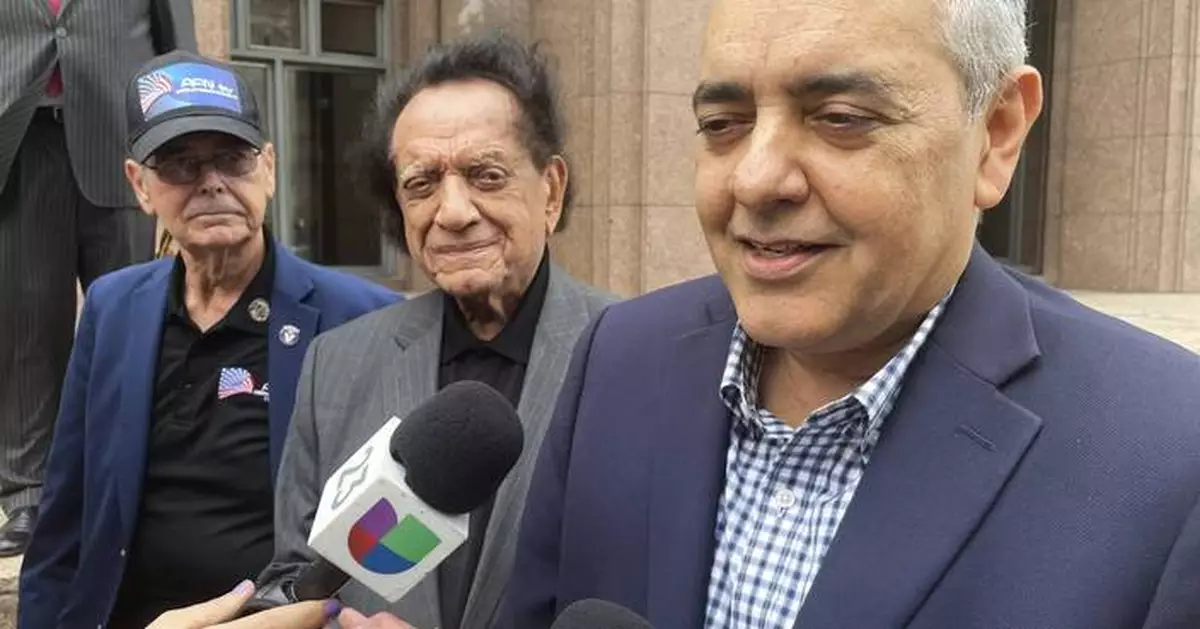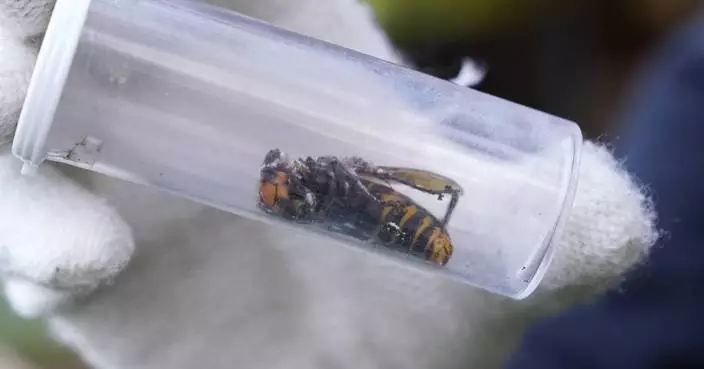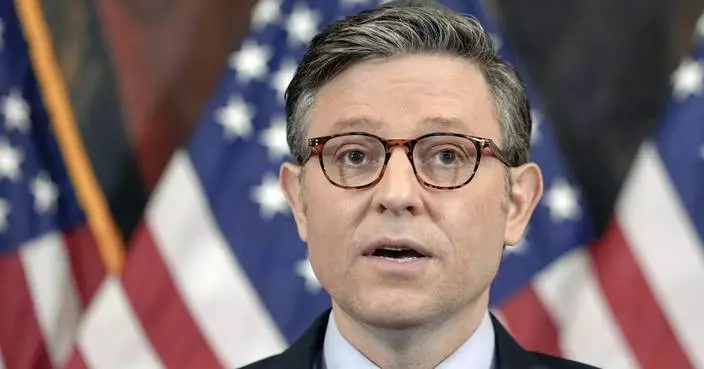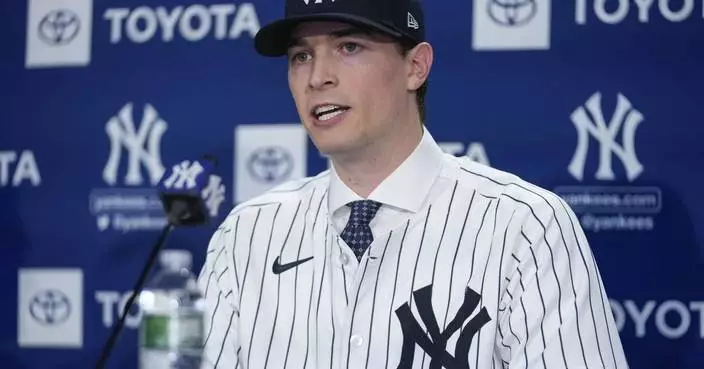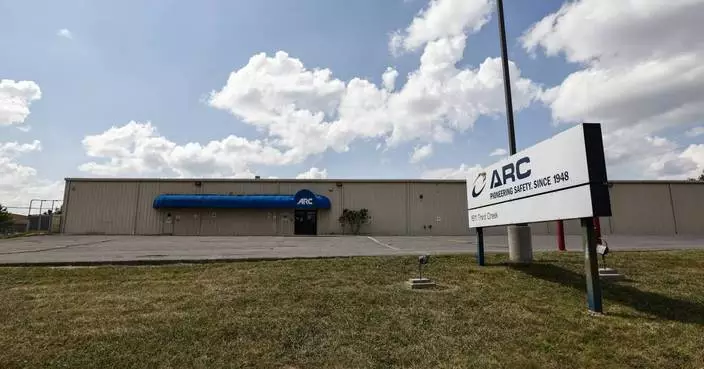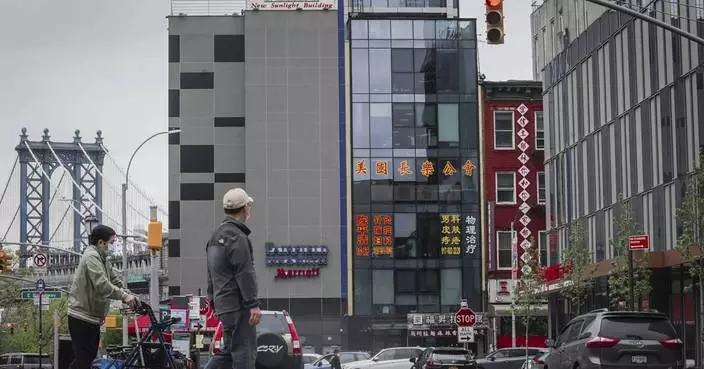MIAMI (AP) — A federal grand jury in Washington has returned an indictment against former Congressman David Rivera for failing to register as a foreign agent of a sanctioned Venezuelan media tycoon on whose behalf the Miami Republican allegedly lobbied the Trump administration.
The indictment is the second set of criminal charges to examine Rivera's relationship with Raúl Gorrín, a billionaire businessman charged in 2018 and again in 2024 with bribing senior Venezuelan officials in corrupt deals to embezzle state funds from Nicolas Maduro's administration.
The indictment unsealed on Wednesday alleges that Rivera, between June 2019 and April 2020, lobbied U.S. officials, including an unnamed senior official in the executive branch, to remove sanctions against Gorrín.
Rivera was allegedly aided in that effort by another unnamed former U.S. official and resident of New York, who he allegedly paid $125,000 from the over $5.5 million he received from Gorrín or on his behalf, prosecutors from the U.S. Justice Department's National Security Division said.
Rivera was charged with money laundering and failing to register under the Foreign Agents Registration Act, as required when lobbying U.S. officials on behalf of foreign individuals and companies.
To promote his criminal activities, Rivera allegedly created fake shell companies registered in Delaware using names associated with a law firm and with the unnamed official, as well as the official's hometown, to give the false appearance that the shell companies were legitimate, according to the indictment. Prosecutors said the official was unaware the companies were using his or her name and hometown.
Ed Shohat, a Miami defense attorney who represents Rivera, declined to comment, saying he hadn't had time to discuss the indictment with his client.
Rivera was arrested in 2022 in another illegal lobbying case, out of federal court in Miami, tied to a $50 million consulting contract his firm, Interamerican Consulting, signed with a U.S. affiliate of Venezuela's state-owned oil company PDVSA. Prosecutors say the 2017 contract was a ruse to hide a secret campaign by Maduro's government to curry favor with the incoming Trump administration.
The Maduro outreach, at the same time Trump's current incoming chief of staff Susie Wiles was working as a lobbyist for Gorrín's TV network Globovision, ultimately failed. In 2019, Trump recognized opposition lawmaker Juan Guaidó as Venezuela’s legitimate leader and imposed stiff oil sanctions on the OPEC nation in a bid to unseat Maduro.
But before the charm offensive unraveled, Gorrín, with the help of Rivera and others, managed to get his photo taken shaking hands with then-Vice President Mike Pence at an event in Florida. Rivera and Gorrín also met with Trump's pick to become Secretary of State, U.S. Sen. Marco Rubio, who was once Rivera's roommate when both were state lawmakers in Tallahassee.
Rivera also looked to set up a possible flight and meeting on Gorrín's jet for a female campaign adviser turned White House “counselor” on June 27, 2017, according to court records in the earlier criminal complaint and a parallel lawsuit filed against Rivera by Maduro’s opponents who now control the U.S. subsidiary of PDVSA. That same day Trump aide Kellyanne Conway was in Miami for a fundraising dinner with Miami Republicans.
Conway told The Associated Press she did not take any private flight and that she and her security detail flew commercial round trip to Miami for the event. All travel arrangements were made by the U.S. Secret Service, she added.
Rivera also roped in Rep. Pete Sessions of Texas to try and set up a meeting for Venezuela’s foreign minister with executives from Exxon, which was headquartered in Sessions’ district at the time.
Rivera, who served in Congress from 2011 to 2013, has been embroiled in several election-related controversies, including orchestrating the stealth funding of an unknown Democratic candidate to take on his main rival in a South Florida congressional race and a state investigation into whether he hid a $1 million contract with a gambling company. That probe also involved possible misuse of campaign funds to pay for state House activities already reimbursed by the state.
He has denied any illegal lobbying on behalf of Venezuela's government and has countersued Maduro's opponents in federal court.
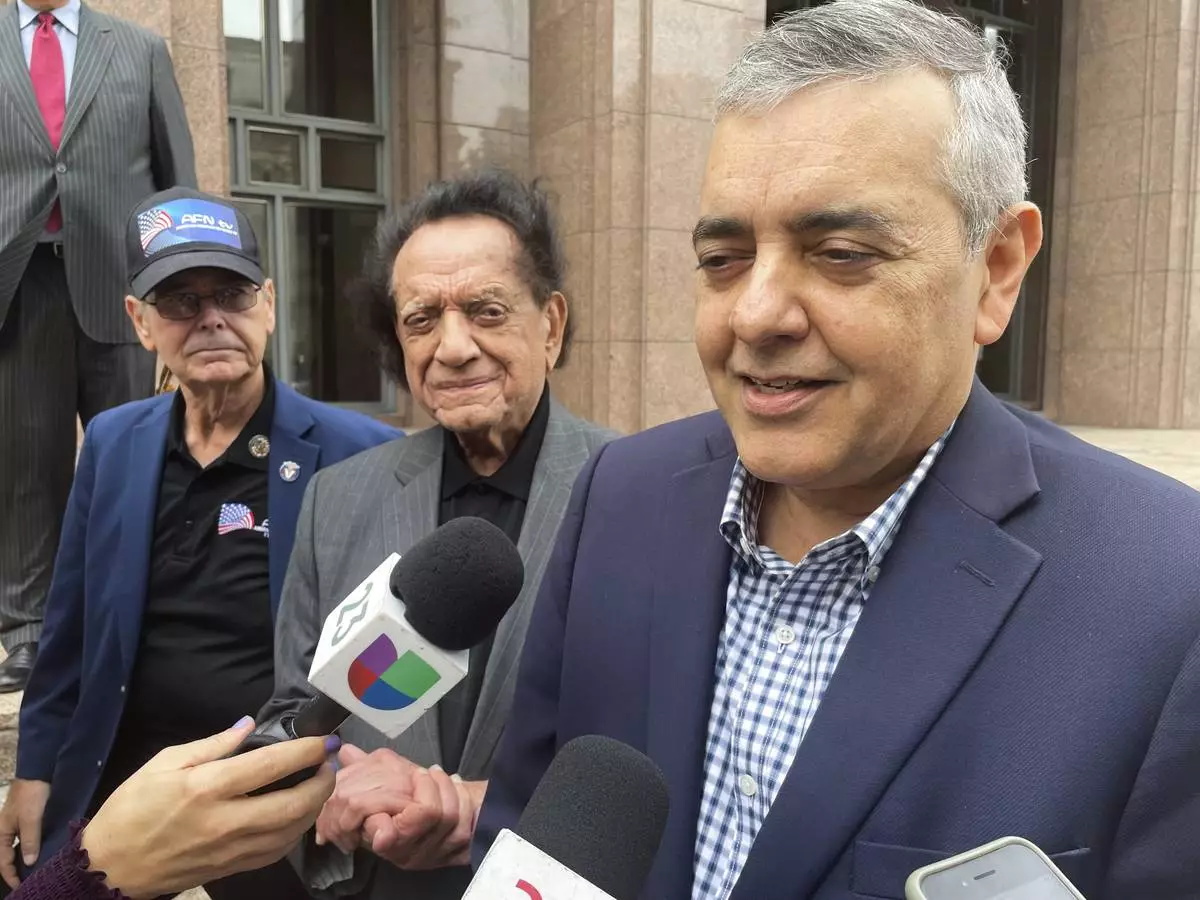
FILE - Former U.S. Rep. David Rivera speaks with media outside Miami federal court, in Miami, Dec. 20, 2022. (AP Photo/Joshua Goodman, File)
Children of the wealthy and connected get special admissions consideration at some elite U.S. universities, according to new filings in a class-action lawsuit originally brought against 17 schools.
Georgetown’s then-president, for example, listed a prospective student on his “president’s list” after meeting her and her wealthy father at an Idaho conference known as “summer camp for billionaires,” according to Tuesday court filings in the price-fixing lawsuit filed in Chicago federal court in 2022.
Although it’s always been assumed that such favoritism exists, the filings offer a rare peek at the often secret deliberations of university heads and admissions officials. They show how schools admit otherwise unqualified wealthy children because their parents have connections and could possibly donate large sums down the line, raising questions about fairness.
Stuart Schmill, the dean of admissions at the Massachusetts Institute of Technology, wrote in a 2018 email that the university admitted four out of six applicants recommended by then-board chairman Robert Millard, including two who “we would really not have otherwise admitted.” The two others were not admitted because they were “not in the ball park, or the push from him was not as strong.”
In the email, Schmill said Millard was careful to play down his influence on admissions decisions, but he said the chair also sent notes on all six students and later met with Schmill to share insight “into who he thought was more of a priority.”
The filings are the latest salvo in a lawsuit that claims that 17 of the nation’s most prestigious colleges colluded to reduce the competition for prospective students and drive down the amount of financial aid they would offer, all while giving special preference to the children of wealthy donors.
“That illegal collusion resulted in the defendants providing far less aid to students than would have been provided in a free market,” said Robert Gilbert, an attorney for the plaintiffs.
Since the lawsuit was filed, 10 of the schools have reached settlements to pay out a total of $284 million, including payments of up to $2,000 to current or former students whose financial aid might have been shortchanged over a period of more than two decades. They are Brown, the University of Chicago, Columbia, Dartmouth, Duke, Emory, Northwestern, Rice, Vanderbilt and Yale.
Johns Hopkins is working on a settlement and the six schools still fighting the lawsuit are the California Institute of Technology, Cornell, Georgetown, MIT, Notre Dame and the University of Pennsylvania.
MIT called the lawsuit and the claims about admissions favoritism baseless.
“MIT has no history of wealth favoritism in its admissions; quite the opposite,” university spokesperson Kimberly Allen said. “After years of discovery in which millions of documents were produced that provide an overwhelming record of independence in our admissions process, plaintiffs could cite just a single instance in which the recommendation of a board member helped sway the decisions for two undergraduate applicants."
In a statement, Penn also said the case is meritless that the evidence shows that it doesn't favor students whose families have donated or pledged money to the Ivy League school.
“Plaintiffs’ whole case is an attempt to embarrass the University about its purported admission practices on issues totally unrelated to this case," the school said.
Notre Dame officials also called the case baseless. “We are confident that every student admitted to Notre Dame is fully qualified and ready to succeed,” a university spokesperson said in a statement.
The South Bend, Indiana, school, though, did apparently admit wealthy students with subpar academic backgrounds.
According to the new court filings, Don Bishop, who was then associate vice president for enrollment at Notre Dame, bluntly wrote about the “special interest” admits in a 2012 email, saying that year's crop had poorer academic records than the previous year's.
The 2012 group included 38 applicants who were given a “very low” academic rating, Bishop wrote. He said those students represented “massive allowances to the power of the family connections and funding history,” adding that “we allowed their high gifting or potential gifting to influence our choices more this year than last year.”
The final line of his email: “Sure hope the wealthy next year raise a few more smart kids!”
Some of the examples pointed to in this week's court filings showed that just being able to pay full tuition would give students an advantage. During a deposition, a former Vanderbilt admissions director said that in some cases, a student would get an edge on the waitlist if they didn’t need financial aid.
The 17 schools were part of a decades-old group that got permission from Congress to come up with a shared approach to awarding financial aid. Such an arrangement might otherwise violate antitrust laws, but Congress allowed it as long as the colleges all had need-blind admissions policies, meaning they wouldn't consider a student’s financial situation when deciding who gets in.
The lawsuit argues that many colleges claimed to be need-blind but routinely favored the children of alumni and donors. In doing so, the suit says, the colleges violated the Congressional exemption and tainted the entire organization.
The group dissolved in recent years when the provision allowing the collaboration expired.
The Associated Press’ education coverage receives financial support from multiple private foundations. AP is solely responsible for all content. Find AP’s standards for working with philanthropies, a list of supporters and funded coverage areas at AP.org.
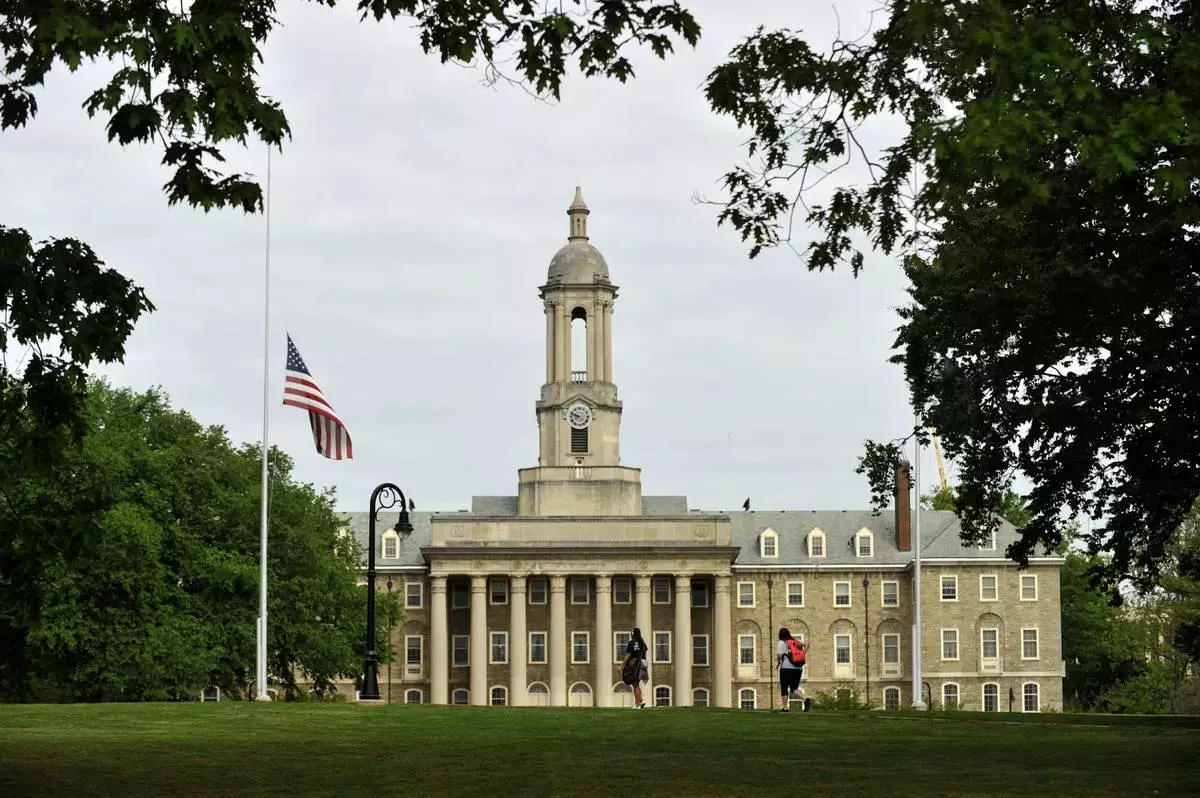
FILE - Pedestrians walk past Penn State University' Old Main building, Friday, May 15, 2015, in State College, Pa. (Nabil K. Mark/Centre Daily Times via AP)



